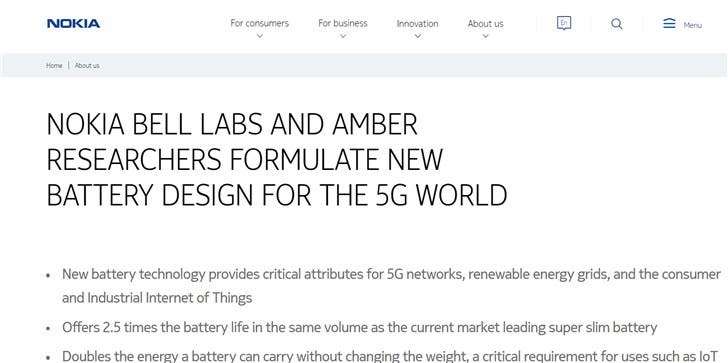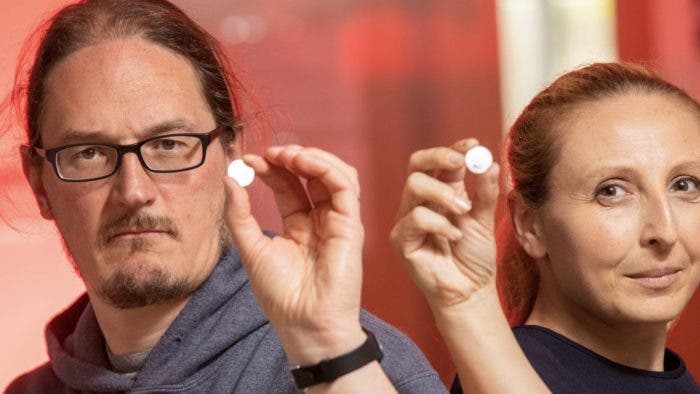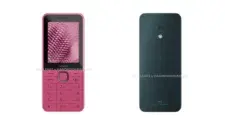Recently, Nokia officially announced that it is developing new battery technology for the arrival of 5G. This new product can provide 2.5 times battery life compared with the current market capacity of ultra-thin batteries.
According to Nokia, the new battery technology can double the energy carried by the battery without changing the weight. At the same time, it will not use larger size batteries and will meet various key requirements of the Internet of Things, electric cars, and drones.

The SFI Advanced Materials and Bioengineering Research Center, hosted by Nokia Bell Labs and AMBER researchers at Trinity College Dublin, announced that they have created a new battery formula that is 2.5 times more battery-powered than any product on the market today.
Almost all the current digital devices require more power to operate longer. All gadgets we use, including smartphones, drones, electric cars, and robots have made new applications requiring higher battery performance and longer battery life.
“By packing more energy into a smaller space, this new battery technology will have a profound impact on 5G and the entire networked world,” said Paul King, one of the lead investigators on the project and Member of the Technical Staff, Nokia Bell Labs. “The combination of Nokia Bell Labs industry and device knowledge and AMBER’s materials science expertise allowed us to tackle an extremely difficult problem involving multiple disciplines. Our results were achieved through the deeply collaborative mode in which we work, underscoring the value of engaging with AMBER as part of our global research strategy.”
Also Read: Nokia Is Working On Two 5g Smartphones, Coming In Q3
A study on battery research conducted by Nokia Bell Labs and AMBER has been published in Nature Energy. Nokia says a patent has been filed for the new technology, with plans to bring it to market in the future. As is commonly the case with new battery technologies, the researchers are providing no specific timetable for commercialization.





